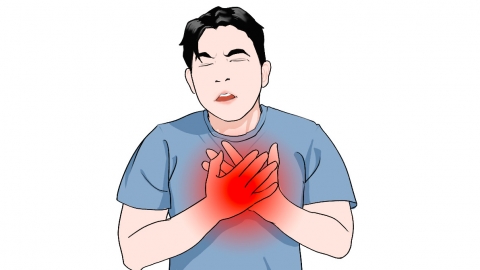What should I do about chest tightness and shortness of breath?
Generally, chest tightness and shortness of breath may be related to emotional tension or anxiety, environmental factors, pneumonia, asthma, heart failure, and other factors. If discomfort occurs, it is recommended to seek medical attention promptly and receive symptomatic treatment under a doctor's guidance. Detailed analysis is as follows:

1. Emotional Tension or Anxiety
Significant emotional fluctuations or prolonged periods of stress may cause rapid breathing and a sensation of chest tightness, possibly accompanied by palpitations, sweating, and tremors. It is recommended to learn relaxation techniques such as deep breathing, meditation, or yoga. If necessary, psychological counseling may be sought for emotional support.
2. Environmental Factors
Chest tightness and shortness of breath may occur when the weather is hot or in environments with poor air circulation. Symptoms may include dizziness and fatigue. It is recommended to move promptly to a cool, well-ventilated environment, ensure indoor air circulation, and maintain adequate hydration to relieve symptoms.
3. Pneumonia
Pneumonia is a lung infection caused by bacteria, viruses, or other pathogens. It causes congestion, swelling of the lung mucosa, increased mucus production, and consequently chest tightness and shortness of breath. Symptoms may include fever, coughing, and expectoration. It is recommended to consult a doctor and use medications such as amoxicillin granules, cefradine capsules, or ambroxol hydrochloride oral solution to alleviate symptoms.
4. Asthma
Airway hyperresponsiveness can cause recurrent episodes of wheezing, difficulty breathing, chest tightness, and coughing. Symptoms may include coughing and wheezing sounds. Under a doctor's guidance, medications such as compound aminophylline tablets, dyphylline tablets, or doxofylline tablets may be used to relieve symptoms.
5. Heart Failure
When cardiac pumping function weakens and cannot meet the blood circulation needs of body tissues, chest tightness and shortness of breath may occur. Symptoms may include leg edema, nocturnal paroxysmal dyspnea, and fatigue. It is recommended to follow medical advice and use medications such as compound puerarin hydrochlorothiazide tablets, furosemide tablets, or metoprolol tartrate capsules to improve symptoms.
Chest tightness and shortness of breath should be treated according to the specific underlying cause. At the same time, maintaining healthy lifestyle habits, avoiding prolonged熬夜 (staying up late), and maintaining an optimistic mindset are beneficial to overall health.







